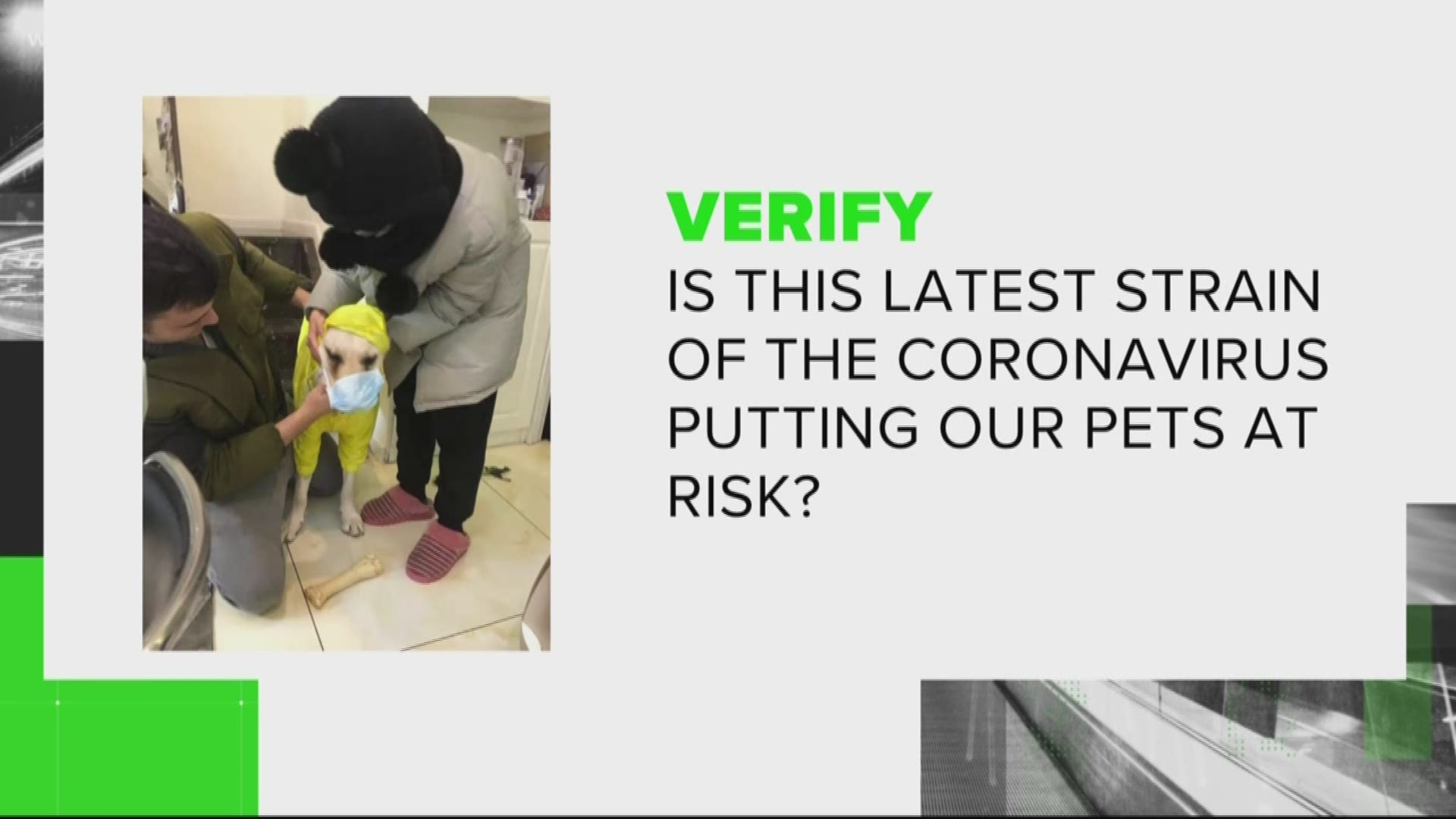WASHINGTON — Question:
Is this latest strain of coronavirus putting our pets at risk?
Answer:
No. Experts at the CDC and the WHO indicate that there is no current evidence that we should worry about our pets.
Sources:
Process:
All across social media, there are posts of dogs and cats wearing masks. These posts have been shared hundreds of times, sometimes simply because they're cute photos.
But there is genuine fear out there about whether our beloved pets are in danger.
"The Chinese coronavirus can infect your pets," one person wrote on Twitter.
To find out if this was true, the Verify team turned to the CDC, the WHO and VCA Animal Hospital, all of which have released a substantial amount of information on the topic.
The WHO commented on this topic, in a "Myth Busters" article, which they posted on their website.
"At present, there is no evidence, that companion animals/pets such as dogs or cats can be infected with the new coronavirus," the organization wrote."
Nonetheless, the WHO urged pet owners to wash their hands after contact with pets, because this will protect them "against various common bacteria such as E.coli and Salmonella that can pass between pets and humans."
The CDC offered similar insights on an FAQ page, listed on their website:
"CDC recommends that people traveling to China avoid animals both live and dead," the organization wrote. "But there is no reason to think that any animals or pets in the United States might be a source of infection with this new coronavirus."
However, the CDC did warn pet owners to avoid their animals while sick.
"Although there have not been reports of pets or other animals becoming sick with 2019-nCoV, several types of coronaviruses can cause illness in animals and spread between animals and people," the CDC wrote.
There is an important distinction though. While the evidence is still unclear surrounding this latest strain, it's more definite that our pets are vulnerable to other types of the coronavirus, according to VCA Hospital.
The illness is "highly infectious," although "usually short-lived," according to a VCA Hospital fact-sheet. The infection is typically defined by "considerable abdominal discomfort for a few days."



